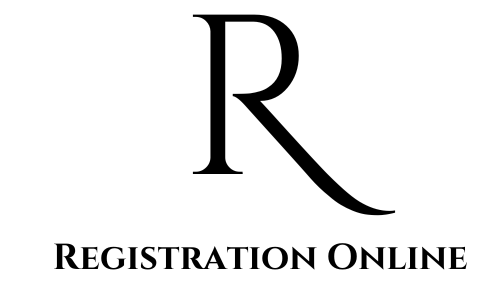Sales Tax Registration In Pakistan Key Steps and Requirements

Brief Overview of Sales Tax and Its Importance
Sales tax is a consumption tax imposed by the government on the sale of goods and services. It is a crucial revenue stream for the government, enabling the funding of public services and infrastructure. When a business sells a product or service, it collects sales tax from the customer and remits it to the tax authorities. This mechanism ensures that tax is collected at various stages of production and distribution, making it an effective way to generate revenue without burdening a single entity.
Importance of Sales Tax Registration for Businesses in Pakistan
For businesses, sales tax registration in Pakistan is not just a legal obligation but a strategic advantage. Sales tax registration provides legitimacy to businesses, enhancing their credibility in the market. It also allows businesses to claim input tax credits, reducing their overall tax liability and improving cash flow. Moreover, registered businesses can avoid hefty penalties and legal issues associated with non-compliance. By registering for sales tax, businesses contribute to the nation’s economy, ensuring a fair distribution of tax responsibilities.
Objectives of the Blog Post
The primary aim of this blog post is to provide a comprehensive guide on sales tax registration in Pakistan. It will cover the following objectives:
- To explain what sales tax is and why it is important.
- To outline who needs to register for sales tax in Pakistan.
- To detail the benefits of sales tax registration for businesses.
- To provide a step-by-step guide on how to register for sales tax.
- To offer insights into post-registration compliance and responsibilities.
- To address common challenges and provide solutions for a smooth registration process.
- To direct readers to useful resources and contacts for further assistance.
What is Sales Tax?
Definition and Explanation of Sales Tax
Sales tax is a type of indirect tax levied by the government on the sale of goods and services. When consumers purchase goods or services, a percentage of the sale price is added as sales tax, which the seller collects and remits to the government. This tax is typically included in the price paid by the consumer at the point of sale. Sales tax is a crucial mechanism for generating revenue for the government, which in turn funds public services and infrastructure projects.
Difference Between Sales Tax and Other Types of Taxes
Sales tax differs from other types of taxes in several key ways:
- Income Tax: Income tax is a direct tax levied on individuals and businesses based on their earnings. It is progressive in nature, meaning the tax rate increases with higher income levels. In contrast, sales tax is a flat percentage applied to the sale of goods and services, regardless of the buyer’s income.
- Value Added Tax (VAT): VAT is another type of consumption tax, but it is collected at every stage of production and distribution, rather than just at the final sale. Each business in the supply chain charges VAT on its sales, and can claim credits for the VAT paid on its purchases, ensuring that the tax is ultimately paid by the end consumer.
- Excise Tax: Excise tax is a specific tax levied on particular goods, such as alcohol, tobacco, and fuel. It is usually included in the price of the product and is intended to reduce consumption of these goods or to generate additional revenue from their sale.
Importance of Sales Tax for the Economy
Sales tax plays a vital role in the economy for several reasons:
- Revenue Generation: Sales tax is a significant source of revenue for governments, providing funds for public services such as healthcare, education, and infrastructure. This revenue is essential for maintaining and improving the quality of life for citizens.
- Fairness and Equity: Sales tax ensures that everyone contributes to government revenue based on their consumption. This means that people who consume more pay more in taxes, distributing the tax burden across a broad base.
- Economic Regulation: By adjusting sales tax rates, governments can influence consumer behavior and economic activity. For example, higher sales taxes on luxury goods can discourage excessive spending, while lower rates on essential items can make them more affordable for the public.
- Simplicity and Efficiency: Sales tax is relatively easy to administer and collect compared to other types of taxes. It provides a steady and predictable source of revenue with minimal administrative costs.
Who Needs to Register for Sales Tax in Pakistan?

Criteria for Mandatory Registration
In Pakistan, certain businesses are required by law to register for sales tax. The criteria for mandatory registration include:
- Annual Turnover Threshold: Businesses with an annual turnover exceeding PKR 10 million for manufacturers and PKR 5 million for retailers and service providers must register for sales tax.
- Commercial Importers: All commercial importers, regardless of their turnover, must register for sales tax.
- Specified Sectors: Certain sectors, such as manufacturers, retailers, wholesalers, distributors, and service providers in specified industries, are required to register irrespective of their turnover.
- Supply to Registered Persons: Businesses supplying goods or services to registered persons or entities must also register for sales tax to comply with invoicing and input tax credit requirements.
Types of Businesses Required to Register
Various types of businesses are obligated to register for sales tax, including:
- Manufacturers: All manufacturing units with turnover above the specified threshold must register.
- Retailers: Retail businesses with annual sales exceeding PKR 5 million need to register.
- Service Providers: Service providers in specified sectors such as advertising, construction, and consultancy with turnover above the threshold must register.
- Importers and Exporters: Commercial importers and exporters are required to register irrespective of their turnover.
- Wholesalers and Distributors: Those engaged in wholesale and distribution activities must register if their turnover exceeds the specified limit.
Voluntary Registration Options
While certain businesses are mandated to register, others may opt for voluntary registration. Voluntary registration is beneficial for businesses that do not meet the mandatory criteria but still want to enjoy the advantages of being a registered taxpayer. These benefits include:
- Input Tax Credit: Voluntarily registered businesses can claim input tax credits on their purchases, reducing their overall tax liability.
- Credibility and Trust: Registration enhances the credibility of a business, making it more trustworthy in the eyes of customers and partners.
- Expansion Opportunities: Registered businesses are often preferred by larger companies and government entities for procurement and contracts, facilitating growth and expansion.
- Compliance and Transparency: Voluntary registration ensures that a business complies with tax laws, avoiding potential legal issues and fines.
Prerequisites for Sales Tax Registration

Required Documents
Before initiating the sales tax registration process in Pakistan, it is essential to gather all the necessary documents. Having these documents ready will streamline the registration process and ensure compliance with the requirements set by the Federal Board of Revenue (FBR). The key documents required for sales tax registration include:
- National Tax Number (NTN)
- Business Registration Documents
- Bank Account Details
- CNIC Copies of Business Owners
National Tax Number (NTN)
The National Tax Number (NTN) is a unique identifier assigned to taxpayers in Pakistan. It is mandatory for businesses to have an NTN before applying for sales tax registration. If you do not already have an NTN, you can apply for one through the FBR’s online portal or by visiting a regional tax office. The process typically involves submitting an application form along with proof of identity and business registration documents.
Business Registration Documents
Businesses need to provide proof of their legal existence and registration status. The required business registration documents vary depending on the type of business entity:
- Sole Proprietorship: A registration certificate from the relevant trade authority or chamber of commerce.
- Partnership: A partnership deed and registration certificate from the Registrar of Firms.
- Private Limited Company: A certificate of incorporation from the Securities and Exchange Commission of Pakistan (SECP), along with the company’s memorandum and articles of association.
These documents verify that the business is legally registered and authorized to operate in Pakistan.
Bank Account Details
Businesses must provide details of their bank account, including the account number and the name of the bank. The bank account should be in the name of the business and must be used for all business transactions. Providing bank account details ensures that the business’s financial activities can be monitored for tax purposes and facilitates the process of tax payments and refunds.
CNIC Copies of Business Owners
Copies of the Computerized National Identity Card (CNIC) of all business owners, partners, or directors are required for sales tax registration. The CNIC serves as proof of identity and nationality, and it helps the FBR verify the identities of those responsible for the business operations. Ensuring that all key individuals are identified helps maintain transparency and accountability.
Understanding Tax Laws and Regulations
Before registering for sales tax, it is crucial to have a good understanding of Pakistan’s tax laws and regulations. This includes knowledge of:
- Sales Tax Act, 1990: The primary legislation governing sales tax in Pakistan.
- Sales Tax Rules, 2006: Detailed rules and procedures for the implementation of the Sales Tax Act.
- Filing Requirements: Understanding the requirements for filing sales tax returns, including the frequency of returns and the documentation needed.
- Invoicing and Record-Keeping: Familiarity with the invoicing requirements and the need for maintaining accurate records of all sales and purchases.
A thorough understanding of these laws and regulations ensures that businesses can comply with all legal requirements and avoid potential issues with the tax authorities.
Step-by-Step Guide to Sales Tax Registration
Prepare Required Documents
List of Necessary Documents To start the sales tax registration process, ensure you have the following documents ready:
- National Tax Number (NTN)
- Business registration documents (e.g., certificate of incorporation, partnership deed, or trade authority registration)
- Bank account details (account number and bank name)
- CNIC copies of all business owners, partners, or directors
How to Obtain Missing Documents If you are missing any of the necessary documents, follow these steps to obtain them:
- NTN: Apply for an NTN through the FBR’s online portal or visit a regional tax office with your CNIC and business registration documents.
- Business Registration Documents: Contact the relevant authority (e.g., SECP, Registrar of Firms, or trade authority) to obtain or update your business registration documents.
- Bank Account Details: Open a business bank account if you do not already have one. Ensure it is in the name of the business.
- CNIC Copies: Ensure all business owners, partners, or directors have valid CNICs. Obtain photocopies for submission.
Create an Account on the FBR Portal
Accessing the FBR Website
- Go to the Federal Board of Revenue (FBR) website: FBR Website
- Click on the “Iris Portal” link to access the tax registration system.
Creating a User Account
- On the Iris Portal, click on “e-Registration” to begin the account creation process.
- Provide your NTN, CNIC, and other required details.
- Create a username and password for your account.
- Verify your account through the email or SMS confirmation sent by FBR.
Filling Out the Application Form
Detailed Instructions on Filling the Form
- Log in to your FBR account on the Iris Portal.
- Navigate to the “Registration” section and select “Sales Tax Registration.”
- Fill in the required information:
- Business Details: Name, address, type of business, and contact information.
- Owner/Partner Information: Names, CNICs, and contact details of all owners, partners, or directors.
- Bank Account Information: Provide details of your business bank account.
- Upload the necessary documents:
- Copy of NTN certificate
- Business registration documents
- Bank account details
- CNIC copies of all business owners, partners, or directors
Important Fields and Common Mistakes to Avoid
- Accurate Information: Ensure all details are accurate and match your official documents to avoid delays or rejections.
- Document Uploads: Double-check that all required documents are uploaded and legible.
- Contact Information: Provide up-to-date contact details to ensure you receive all communications from FBR.
Submission and Verification
Submitting the Application Online
- Review all the information and documents before submitting the application.
- Click on the “Submit” button to send your application to FBR for processing.
Verification Process by FBR
- After submission, FBR will review your application and documents.
- FBR may contact you for additional information or clarification if needed.
- The verification process may involve an inspection of your business premises.
Issuance of Sales Tax Registration Certificate
Receiving the Certificate
- Once FBR approves your application, you will receive a notification via email or SMS.
- Log in to your FBR account to download and print your Sales Tax Registration Certificate.
Next Steps After Registration
- Display the Certificate: Display the Sales Tax Registration Certificate at your business premises.
- Invoicing and Record-Keeping: Ensure you issue proper sales tax invoices and maintain accurate records of all transactions.
- Filing Returns: Begin filing your sales tax returns as per the schedule provided by FBR.
- Stay Compliant: Regularly check for updates on tax laws and ensure ongoing compliance to avoid penalties.
Post-Registration Compliance

Filing Sales Tax Returns
Once registered for sales tax, businesses must regularly file sales tax returns. This involves reporting the amount of sales tax collected and the input tax paid. In Pakistan, sales tax returns are typically filed on a monthly basis. Here’s how to ensure compliance:
- Monthly Filing: Sales tax returns must be filed by the 15th of the following month.
- Accurate Reporting: Accurately report the total sales, the amount of sales tax collected, and the input tax credits claimed.
- Online Submission: Use the FBR’s online portal (Iris) to file returns. Log in to your account, navigate to the “Sales Tax Return” section, and fill in the required details.
- Supporting Documents: Maintain and submit supporting documents, such as sales invoices, purchase receipts, and bank statements, as needed.
Record-Keeping Requirements
Proper record-keeping is crucial for compliance and for smooth operations during audits or inspections. Here are the key requirements:
- Sales Invoices: Issue and retain sales invoices for all transactions, ensuring they include the business name, address, NTN, sales tax registration number, and the amount of sales tax charged.
- Purchase Receipts: Keep all purchase receipts and invoices to support input tax credit claims.
- Transaction Records: Maintain detailed records of all sales and purchases, including date, amount, and customer/supplier information.
- Books of Accounts: Maintain updated books of accounts, including ledgers, journals, and cash books, to track all financial transactions.
- Retention Period: Records should be retained for at least five years, as required by the FBR.
Payment of Sales Tax
Paying sales tax on time is essential to avoid penalties and interest charges. Follow these steps to ensure timely payment:
- Calculate Liability: Calculate the total sales tax liability based on the sales tax collected minus the input tax credits claimed.
- Payment Methods: Use the available payment methods, such as online banking, bank challans, or direct deposit, to pay the tax.
- Payment Deadline: Ensure the payment is made by the due date (typically the 15th of the following month).
- Confirm Payment: After making the payment, confirm the payment status through the FBR portal and keep a copy of the payment receipt for your records.
Penalties for Non-Compliance
Non-compliance with sales tax regulations can result in severe penalties and legal consequences. It is essential to understand and avoid these penalties:
- Late Filing Penalties: Failure to file sales tax returns on time can result in penalties, typically a fixed amount or a percentage of the tax due.
- Late Payment Penalties: Delayed payment of sales tax can incur penalties and interest charges on the unpaid amount.
- Incorrect Reporting: Filing incorrect or incomplete information can lead to fines and additional scrutiny from the FBR.
- Record-Keeping Violations: Inadequate record-keeping can result in penalties and challenges during audits.
- Evasion and Fraud: Intentional tax evasion or fraudulent activities can lead to severe penalties, including fines, imprisonment, and business closure.







